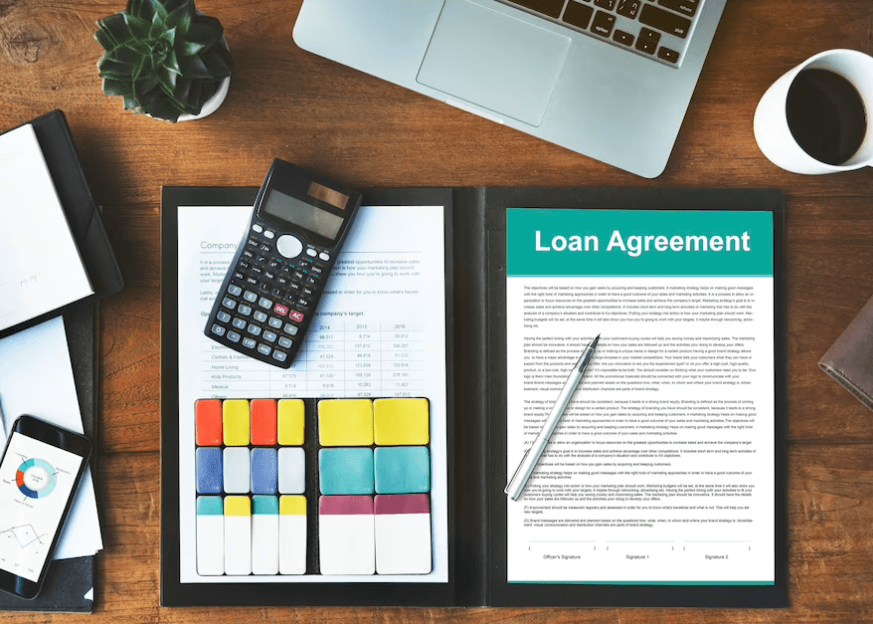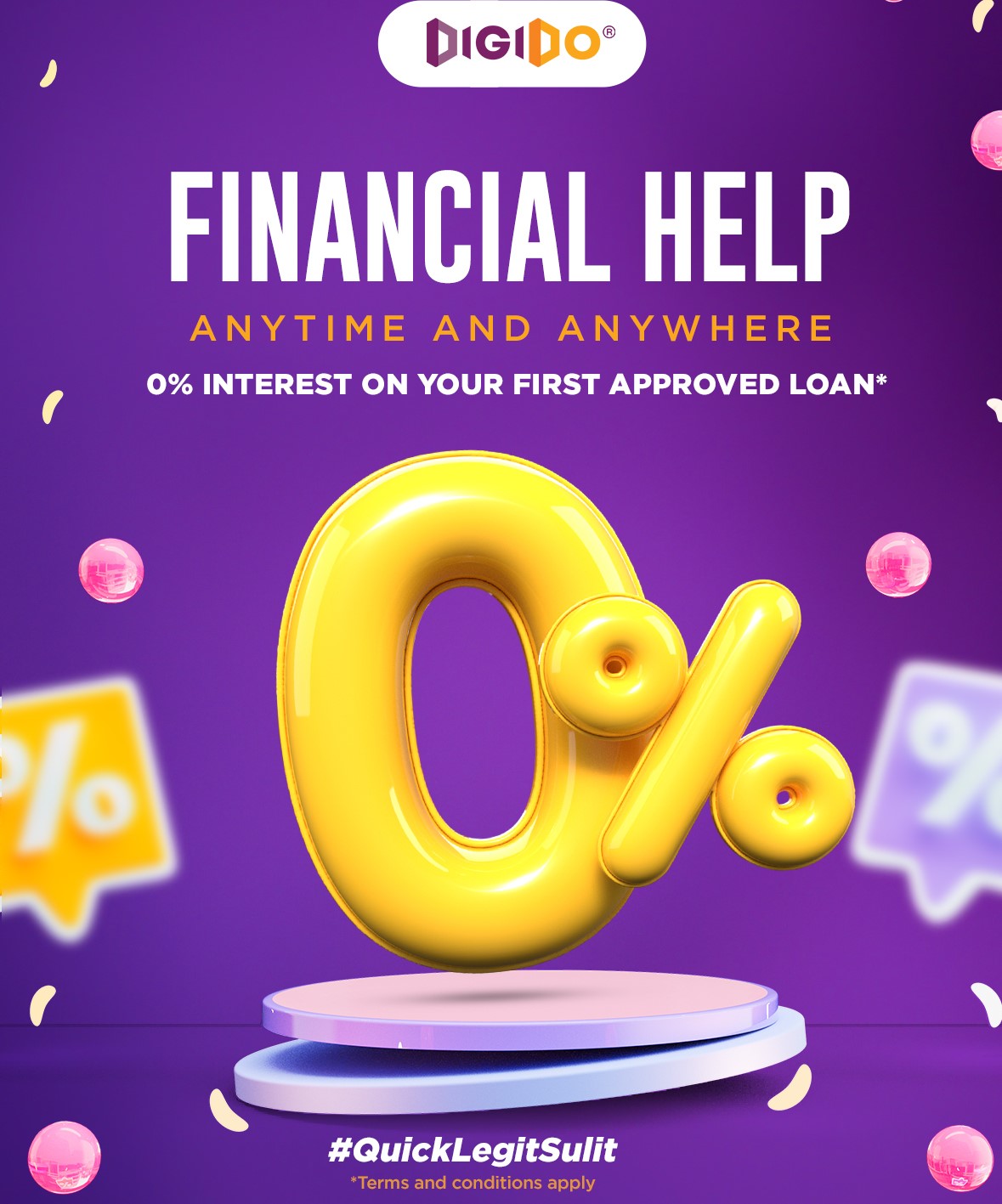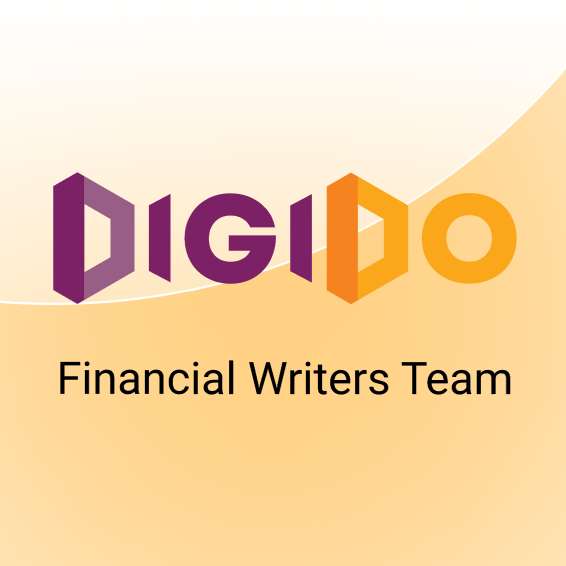Debt Consolidation Loan the Philippines: Debt Settlement with a Single Loan
Key takeaways:
- With a debt consolidation loan, you can merge multiple debts into one single payment
- If you’re struggling with high interest rates, taking out a debt consolidation loan could be wise
- Digido provides a reliable and trustworthy lending option for Filipinos in need of financial assistance
Table of Contents

Do you find it challenging to manage numerous debts and make monthly payments on time? A debt consolidation loan in the Philippines may be the answer you need to streamline your finances and regain control. A single loan can streamline your payments and possibly cut your interest rates. Keep reading as we explore how a debt consolidation loan can financially help you get back on track!
What is a Debt Consolidation?
A debt consolidation loan allows a borrower to consolidate or combine numerous debts into a single loan. The funds from this loan can be utilized to settle outstanding balances on credit cards, personal loans, and other debts with high-interest rates, which can help borrowers manage their debt more effectively.
This can be done in two main ways: by taking out a debt consolidation loan or by transferring existing credit card debts to another credit card with better terms, known as a balance transfer. Both methods aim to reduce the complexity of managing multiple payments and may help secure lower interest rates.
Debt Consolidation Loans Mechanics
Debt consolidation involves combining multiple debts into a single loan. This process allows a borrower to streamline their debt payments by consolidating their various debts into one account. The borrower then receives a consolidated loan and makes a single monthly payment at a fixed amount, which is allocated towards repaying all the combined debts over a specified term. It simplifies how you pay back what you owe by having just one bill to worry about.
- Only 1 valid ID needed to apply
- First loan with 0% interest rate
- Fast approval in 5 minutes

Learn How to Get
Fast Emergency Loans
Benefits of Debt Consolidation Loan in the Philippines
Debt consolidation loans in the Philippines can help individuals merge multiple debts into a single loan with a lower interest rate and monthly payment, which can make it easier to manage finances and reduce debt. By consolidating debt, individuals can also simplify their financial obligations and avoid missing payments, which can negatively impact credit scores. When is debt Settlement in the Philippines a good idea:
👉 Deal with High-Interest Rates
Let’s say you are a borrower with a credit card with a 20% interest rate and a personal loan with a 15% interest rate. Consolidating such debts into a single loan with a 10% interest rate could save the borrower money.
👉 Organize Your Debts
Managing debts with different interest rates and due dates can be confusing and overwhelming. Debt consolidation can simplify the process by combining all debts into a monthly payment. That can make it simpler for borrowers to manage their finances and ensure they don’t miss any payments.
Suppose you’re a borrower with multiple credit cards with different due dates. You can consolidate such debts into a single loan and make single monthly payments.
👉 Clear Your Debts Quickly
Debt consolidation loans Philippines can provide shorter repayment terms, helping borrowers settle their debts faster. For instance, suppose you have a credit card with a high balance. Having a high-interest rate will allow you to consolidate your debt into a new loan with a shorter repayment term. In turn, that will enable you to settle the debt sooner and save some on interest charges.
👉 Simplified Your Payments
Instead of juggling multiple payments to different creditors each month, a debt consolidation loan consolidates these into a single monthly payment. This simplification helps in better managing your budget and reduces the chances of missing payments.
👉 Improved Your Credit Score
By consolidating debt and making regular, timely payments, you can gradually improve your credit score. Consistently reducing your overall debt balance without accruing new debt is viewed positively by credit bureaus.
👉 Stop Increasing Debt
A consolidation loan can act as a stopgap to prevent further accrual of debt, especially from credit cards. By converting revolving credit into a term loan, you avoid the temptation to keep increasing credit card debt.

What Are the Types of Debt Consolidation
Debt consolidation loans are a popular option for people in the Philippines who are struggling with multiple debts. These loans allow you to combine all of your debts into one manageable loan with a lower interest rate and a longer repayment term. Here are the types of debt consolidation loans available in the Philippines:
✓ Personal Loan
This is a loan that you can take out from a bank or a financial institution. You can use the loan amount to pay off your existing debts and then make one monthly payment on the personal loan. These loans typically have fixed interest rates and terms, which can simplify monthly payments and potentially reduce the total interest paid.
✓ Balance Transfer Credit Card
Some credit cards offer balance transfer options, allowing you to transfer the balances from your high-interest credit cards to a new credit card with a lower interest rate. Balance transfer credit cards typically offer promotional interest rates for a limited time, usually 6 to 12 months.
Several banks and credit card providers in the Philippines offer balance transfer credit cards, including:
- BDO Unibank
- Metrobank
- BPI
- Citibank
- HSBC
- Security Bank
- EastWest Bank
- RCBC Bankard
Each provider may have different terms and conditions for their balance transfer credit cards, such as the interest rates, fees, and promotional periods.
✓ Home Equity Loan
If you own property, you can take out a home equity loan it allows you to borrow against the equity of your home to pay off multiple debts. This typically offers a lower interest rate compared to unsecured loans, but it does put your home at risk if you fail to make payments.
✓ Debt Management Plans (DMP)
A DMP may be a good option if the following apply to you: you can afford your living costs and have a way to deal with any priority debts, but you’re struggling to keep up with your credit cards and loans. you’d like someone to deal with your creditors for you. making one set monthly payment will help you to budget.
✓ Government Debt Consolidation Programs
The Philippine government offers a debt consolidation programs for people who have multiple debts with different lenders. The program allows you to consolidate your debts into one loan with a lower interest rate and a longer repayment term.
You can also try the option of informal negotiations: This involves directly negotiating with creditors to consolidate and restructure your debts. This may not be a formal program like other options, but it can result in lower interest rates or more manageable payment terms
Read more:
✦ Your Credit Score in the Philippines
✦ Quick Loan For Unemployed
Where to apply for Debt Сonsolidation in the Philippines
Here are some popular government debt consolidation programs in the Philippines:
- Pag-IBIG Fund Loan Consolidation Program (1) – offered by the Home Development Mutual Fund (Pag-IBIG), this program is available for members who have existing loans from the fund and other lenders. It allows you to consolidate all your loans into one with a lower interest rate and a longer repayment term.
- SSS Loan Restructuring Program (2) – provided by the Social Security System (SSS), this program is available for members who have unpaid loans with the SSS. It allows you to restructure your loans and pay them off through a new loan with a lower interest rate and longer repayment term.
- GSIS Financial Assistance Loan (3) (GFAL). Program – offered by the Government Service Insurance System (GSIS), this program is available for members who have outstanding loans with lending institutions. It allows you to consolidate your loans into one with a lower interest rate and a longer repayment term.
- Credit Management Association of the Philippines (4) (CMAP) – While not a direct lender, CMAP can assist in negotiating with creditors to consolidate and restructure debts under terms that are manageable for the borrower.
Many private financial institutions offer debt consolidation services. These might not be government-backed but can offer competitive rates and are worth considering.
- Land Bank of the Philippines Loan Consolidation Program – provided by the Land Bank of the Philippines, this program is available for borrowers who have multiple loans from the bank. It allows you to consolidate your loans into one with a lower interest rate and a longer repayment term.
- RCBC Personal Loan: Offers loans from ₱50,000 to ₱1 million for debt consolidation with a competitive interest rate over a tenure of up to 36 months.
- CIMB Personal Loan: Provides fully digital application processes for loans up to ₱1 million with terms up to 60 months, catering to those with lower income thresholds
- BDO Unibank: Offers personal loans that can be used for debt consolidation. BDO provides competitive interest rates and flexible loan terms.
Note: The information about loan providers presented in the text is subject to change and borrowers are advised to contact their chosen institution directly for the most updated information.

Need money you can borrow quickly? Get up to PHP 25,000 in just 4 minutes! Calculate your loan cost and click ‘Apply Now’:
* Interest payments are approximate. The final loan amount and interest rate must be confirmed in your loan agreement after loan approval.
Requirements to Qualify for a Debt Consolidation Loan
Debt consolidation loans often have specific requirements that borrowers should meet to be qualified. Some of the requirements for this loan include the following:
✅ A Filipino citizen from 21 to 65 years old
✅ A minimum monthly income (some lenders require from Php 20,000 or more)
✅ Valid ID
✅ Collateral (for secured loans)
To be eligible for a debt consolidation Philippines, most providers require applicants to have a good credit report, payment history, and a stable income to ensure they can repay the loan. Essentially, they prefer applicants without red flags, indicating a high default risk. Some providers may also require collateral for more substantial loan amounts, such as a house or car.
If you have an imperfect credit report due to unpaid loans or credit card bills and need to consolidate your debts, you may want to explore other options with more flexible approval criteria.

Here is a step-by-step guide to the debt consolidation process in the Philippines:
- Assess Your Debt: Determine the total amount of debt you owe, the interest rates and fees you are paying, and the monthly payments you are making. This will help you determine if debt consolidation is the right option for you.
- Choose a Provider: Research and compare the different debt consolidation options available in the Philippines, such as personal loans, balance transfer credit cards, and government programs. Consider the interest rates, fees, and repayment terms of each option.
- Apply for the Loan: Once you have chosen a debt consolidation provider, apply for the loan or credit card. You will need to provide documentation such as identification, proof of income, and a list of your existing debts.
- Pay Off Your Debts: If approved, use the loan or credit card to pay off your existing debts. Make sure to follow the terms and conditions of the loan or credit card, such as making on-time payments.
- Monitor Your Payments: Keep track of your payments and make sure to pay on time to avoid additional fees and interest charges. It’s important to stick to your budget and avoid taking on additional debt while you are paying off your consolidated loan.
Pros and Cons of Debt Consolidation loan
| Pros | Cons |
|---|---|
| ✓ Interest rates are lower. ✓ Monthly payments are reduced. ✓ Simplified debt management ✓ Improved credit score |
✕ Possible increase in the total amount paid ✕ Impact on credit score ✕ Default and foreclosure risks ✕ It will not free you from debts ✕ The fees still need to be paid |

These points further highlight situations where debt consolidation might not be beneficial:
- Misconceptions about Debt Elimination: If you believe that consolidating your debts will magically erase them, this can be misleading. Consolidation simply combines multiple debts into one payment; it doesn’t reduce the total amount owed.
- High Fees and Costs: Fees associated with debt consolidation, such as balance transfer fees, annual fees, and possibly high interest rates, can add up. If the fees or the new loan’s interest rate are too high, the financial benefits of consolidation could be negated.
- Extended Payment Terms: By extending the term of the loan to lower monthly payments, you might end up paying more in total interest over the life of the loan. This could make the overall debt more expensive than the original debts.
- Risk of Missing Payments: If you’re prone to missing payments, consolidating your debts into a single larger loan could increase the risk of significant penalties and fees, exacerbating your financial situation.
- Small and Manageable Debts: For smaller debts that can be paid off relatively quickly, consolidation might not be necessary and could even be more costly when considering fees and potential interest rate changes.
Factors To Consider When Choosing a Provider
Consider the provider’s credit score requirements, debt-to-income ratio, and other eligibility criteria to ensure you qualify for the loan.
- Compare the interest rates, origination fees, and other charges associated with the loan to find a provider that offers competitive rates.
- Check the loan amount and repayment terms offered by the provider to ensure they align with your needs and financial situation.
- Evaluate the provider’s customer service quality, responsiveness, and accessibility to ensure they provide adequate support throughout the loan application and repayment process.
- Read the loan agreement carefully, understand the terms and conditions, and research the provider’s reputation to avoid hidden fees, scams, or fraudulent activities.
Tips on How to Manage Debt on Your Own
- Know how much you owe
Gather all your financial statements, credit card bills, and loan documents to determine your total debt. - Admit that you need help
Seek advice from a financial advisor or a credit counselor to help you manage your debt. - Set up a payment calendar
Create a schedule to monitor your payments and dodge late fees or missed payments. - Decide which debt to pay off first
Prioritize debts with high-interest rates or those with the smallest balance. - Prioritize debt payments
Allocate more money to pay off debts with high-interest rates or those that are overdue. - Reduce expenses
Cut down on unnecessary expenses, avoid impulse buying, and create a realistic budget to manage your finances. - Increase income
Consider taking on a part-time job, selling unused items, or negotiating a salary increase to boost your income and pay off your debt faster.
Read more: How to apply for
✦ Fast Loan in 15 Minutes in the Philippines
✦ Loan No Requirements in Philippines with Minimum Documents

Why people choose Digido for Personal Loans
Digido provides a convenient and efficient way to finance with a range of loans, from 0% interest for first-time borrowers to unsecured loans of up to PHP 25,000 for repeat borrowers. Digido offers a fast and flexible application process, competitive interest rates, no collateral requirements and the ability to use the remaining funds for any purpose.
There are several benefits to using Digido for your personal loan needs, including:
- 0% interest for first loan
- Easy online application process
- Only 1 valid ID needed to apply
- Quick loan approval in 5 minutes
- Use of funds for any purpose
- No collateral is required
- No proof of income is required
Digido offers a convenient and accessible way to get a personal loan in the Philippines. Their easy application process, quick loan approval, and flexible loan amounts make it a great option for those who need funds quickly and without hassle.
Apply nowSummary
To sum up, a debt consolidation loan in the Philippines can simplify your finances and possibly diminish your interest rates by combining multiple debts into a single loan.
These loans can offer shorter repayment terms to help you pay off your debts faster. However, consider the potential risks and disadvantages of debt consolidation loans, such as a possible increase in the total amount paid and the impact on their credit score.
Learn more:
✦ Personal Online Loan up to PHP 25,000 in the Philippines
✦ What is Multi-Purpose Loans (MPL) in the Philippines

FAQ
-
Does debt consolidation worsen your credit rating?Debt consolidation can worsen your credit score in the short term due to the credit inquiry and new account opening. Still, it can also improve your score in the long run by reducing your debt-to-credit ratio and improving your payment history
-
Can I still apply for a debt consolidation loan if I have a bad credit score in the Philippines?Yes, you may still apply for a debt consolidation loan in the Philippines even if you have a bad credit score, but the chances of approval may be lower, and the interest rates may be higher.
-
What happens if I miss a payment on my debt consolidation loan in the Philippines?If you miss a payment on your debt consolidation loan in the Philippines, it can negatively impact your credit score, and you may incur late fees or penalties. It's important to contact your lender as soon as possible to discuss your options.
-
How long does it take to pay off a debt consolidation loan in the Philippines?The length of time it takes to pay off a debt consolidation loan in the Philippines depends on various factors, such as the loan amount, interest rate, and payment terms. Typically, it can take several years to pay off a debt consolidation loan, but this can vary depending on individual circumstances.
-
Why is Debt consolidation as a short-term fix?A debt settlement loan can be a short-term fix because it does not address the root cause of debt: overspending and living beyond one’s means. Pairing debt consolidation with a budget and lifestyle change is essential to ensure long-term financial stability.



